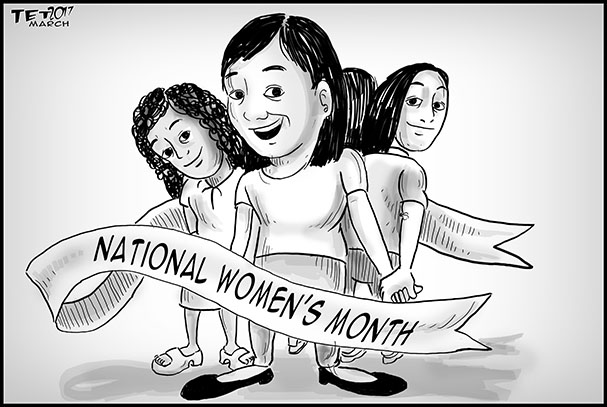
[av_one_full first min_height=” vertical_alignment=” space=” custom_margin=” margin=’0px’ padding=’0px’ border=” border_color=” radius=’0px’ background_color=” src=” background_position=’top left’ background_repeat=’no-repeat’ animation=”]
[av_heading heading=’Valuable lessons’ tag=’h3′ style=’blockquote modern-quote’ size=” subheading_active=’subheading_below’ subheading_size=’15’ padding=’10’ color=” custom_font=”][/av_heading]
[av_textblock size=” font_color=’custom’ color=”]
Friday, March 10, 2017
[/av_textblock]
[av_textblock size=” font_color=” color=”]
AS WE celebrate National Women’s Month, we pay tribute to Filipinas, especially our mothers but this time from an ecological perspective.
Perhaps many of us overlook the fact that from our mothers at home we learn environment-friendly practices such as repairing, reusing and recycling our discards. Yes, caring for our surroundings, doing more with fewer resources, cutting waste, and even creating wealth from trash – these are life-sustaining values we first learn at home from our mothers. In their earnest desire to transform the humble house into a livable home, our mothers have instilled in us in the most subtle of ways these valuable lessons.
And lest we forget, our mothers nourished us with the best and healthiest food when we were babies – the breastmilk. Thus this month is an opportune time to raise public awareness on the need to protect women from toxins that endanger their health and their capacity to bear, nurture and sustain life.
With thousands of chemicals manufactured and traded globally, it has become “normal” to find toxins in cosmetic products, household cleaning materials, consumer goods, toys, in the air we breathe and in the food and water we consume. Many of these chemicals lodge in the body’s fat cells. As nature has endowed women’s bodies with extra stores of fat for childbearing and breastfeeding, women tend to be more vulnerable to these chemicals. More than a decade ago, the US’ Environmental Working Group and Commonweal disclosed that an average of 200 industrial chemicals and contaminants – pesticides, consumer product ingredients, wastes from burning trash, gasoline and coal – were found in the umbilical cord blood of 10 babies born in US hospitals. These chemicals are so invasive that even babies are getting contaminated.
Let us prevent and reduce toxic contamination of our environment – from smoke-belching vehicles, dirty factories and products, horrendous dumps and incinerators and other pollution sources. Let us reduce if not totally eliminate human exposure to toxic hazards. This is a mindful way of honoring our women and protecting our children.
[/av_textblock]
[/av_one_full]



